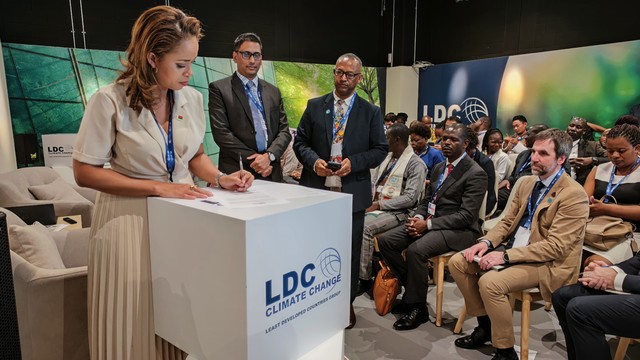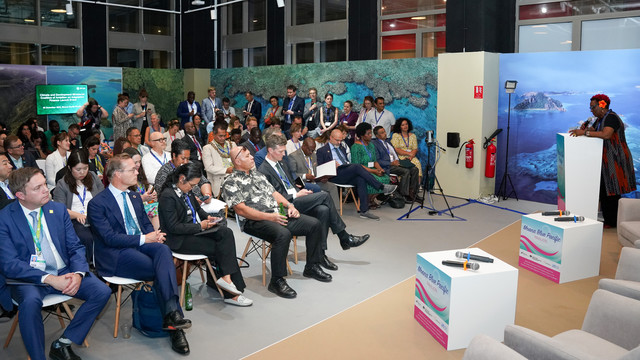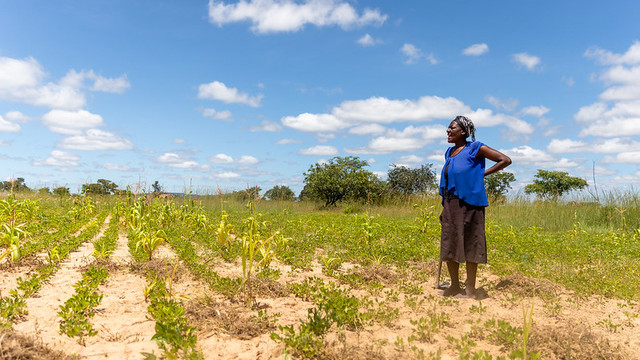Countries missing deadlines to submit climate plans more than half the time
Governments have shown a consistently sluggish response to the climate crisis over the last decade.
Governments around the world have missed deadlines for submitting or updating their plans for tackling climate change more than half of the time over the last decade, according to analysis by IIED, published as the United Nations prepares to convene a Climate Ambition Summit in New York.
The UN says the summit is “a critical political milestone for demonstrating that there is collective global will” to make the necessary changes. Earlier this month, it released the initial findings of its ‘global stocktake’ report showing that the world is not on track to limit the increase in global temperatures to 1.5°C above pre-industrial levels and pledges so far from governments were insufficient.
Countries that were party to the UN’s Framework Convention on Climate Change agreed in 2013 to set out their plans and targets for combatting the climate crisis, and to update and improve them regularly. IIED’s analysis compared the number of submissions that successfully met each deadline with the number of countries that needed to meet it, and found that overall 59% of deadlines were missed.
Tom Mitchell, IIED’s executive director, said: “This is yet more evidence that governments just aren’t acting swiftly enough to respond to the climate emergency. Politics and greed are putting short-term profit over the lives and livelihoods of millions of people, and are acting as a brake on real action to address the climate crisis.
“The Climate Ambition Summit is a chance for world leaders to push aside the vested interests promoting delay and confusion, and instead bring forward a credible, united plan.”
IIED included five historical UN deadlines in its analysis. Forty-eight nations, a quarter of the total, failed to submit their plans, known as Nationally Determined Contributions (NDCs) “well in advance” of COP21 in 2015. Just 73 met the original five-year target for updates and improvements at the end of 2020.
Two additional deadlines the following year, ahead of the delayed COP26, were hit by 38 and 30 of the remaining countries, respectively. Just 34 submitted an updated NDC between COP26 and the end of 2022, despite all parties agreeing to do so in the Glasgow Climate Pact. Major oil producers including the US, China and Saudi Arabia all missed this deadline, as did the UAE – the hosts of COP28.
Missing these deadlines not only displays a lack of commitment to the process of tackling climate change, but can also complicate the UN’s job of analysing the potential impact of promised actions.
This week IIED is launching its hidden handbrakes campaign that aims to research and expose the problems holding back humanity’s attempts to fight climate change.
Those identified so far include the sovereign debt crisis, which significantly restricts what the world’s poorest countries can do to protect themselves from climate-driven damage, and investor-state dispute settlements, the system by which private companies can demand compensation if environmentally friendly government policies disrupt their business.
Contributors who believe they have identified a Hidden Handbrake can visit IIED’s web platform to submit their evidence.
IIED’s analysis of NDCs also revealed the paucity of ambition they contain. Just 48 countries, including the EU 27, have defined a target date for reaching net zero emissions. There are 20 nations whose ambitions to reduce emissions have lessened over time, the most significant being Brazil and Russia, and six whose ambitions have remained the same despite the Paris climate accord mandating improvement with each new submission.
Contact
For more information or to request an interview, contact Jon Sharman on +44 7407 727 886 or jon.sharman@iied.org, and Sarah Grainger on +44 7503 643 332 or sarah.grainger@iied.org
Notes to editors
The full briefing accompanying this release can be found at this link: https://tinyurl.com/2h5bp8cz
For more information or to request an interview, contact Simon Cullen:
+44 7503 643332 or simon.cullen@iied.org



